Aging brings on many surprises to your body. For example, you may notice differences in stamina when it comes to the distance you run or how far you ride your bike. According to A Healthier Michigan, the key to improved endurance and stamina is by performing regular exercise and maintaining a healthy heart. To help accomplish this, we’ve come up with the best fitness habits to build stamina and endurance as you age.
Eat This, Not That! spoke with the experts who agree that consistent regular aerobic exercise is essential when it comes to building stamina and endurance as you grow older. It’s not uncommon to have some days when you feel like you have no energy. There are many things you can do. For instance, your heart plays a big role when it comes to all of your movements. As you age, this vital organ changes, A Healthier Michigan reports. With regular exercise, you can work out regularly to build a healthy heart and help to maintain stamina and endurance.
Read on to learn what other goodness you can add to your weekly routine. Just remember that it’s always wise to check in with a medical professional and/or certified fitness expert before starting any vigorous workout routine. We have the scoop on the five fitness habits to build stamina and endurance as you age.
1. Aerobic Exercise
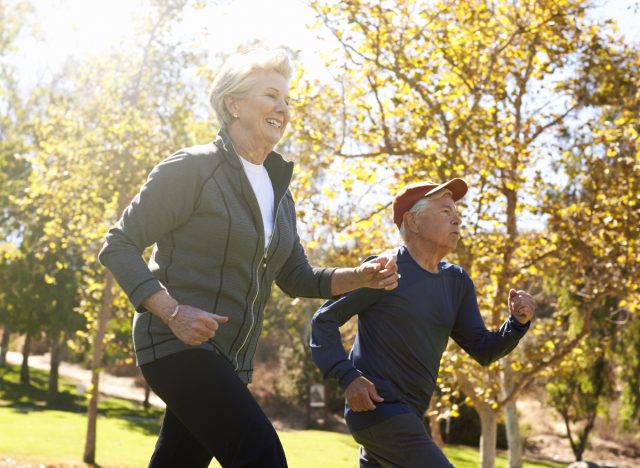

If your goal is to enjoy an independent lifestyle as you age, you need to be active to maintain a healthy heart rate, energy, and breathing, WebMD explains. Tyler Read, the founder of PTPioneer.com and a personal trainer who has been involved in health and fitness for the past 15 years, tells us, “I recommend daily aerobic exercise of 20-30 minutes, for a total of 150 minutes per week per the ACSM guidelines.” There are so many low-impact activities to choose from, including swimming, cycling, and brisk walking.
Anthony J. Yeung, CSCS, a fitness expert and the founder of GroomBuilder, agrees working classic aerobic exercise into your routine is the name of the game. He adds, “For ultimate endurance, you can’t beat traditional aerobic exercise … keeping a heart rate of 120 to 130 will do wonders for your cardiovascular strength and stamina.”
2. Resistance Training
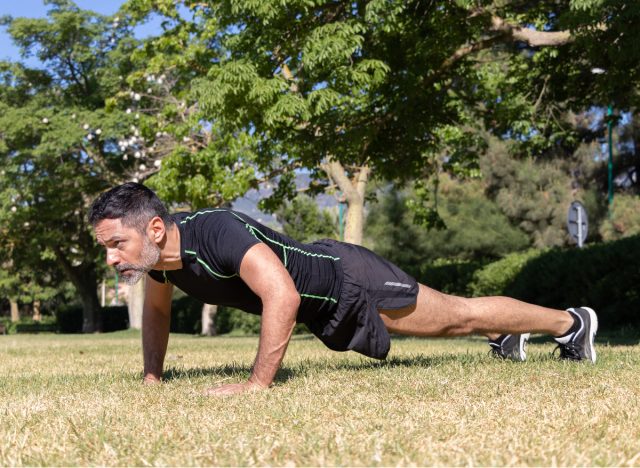

One of the most effective ways to decrease the loss of muscle as you age, which contributes to the decline of endurance and stamina, is by incorporating resistance training into your fitness plan. In doing so, you will build up your muscle strength by training your muscles against resistance—aka added weight or an external force, Better Health explains. To preserve your stamina and endurance, consider using resistance bands, weight machines, and free weights in your workouts.
“The stronger you are, the easier it is to have stamina and endurance because you’ll have the muscle size and power to maintain physical activity levels for longer times. Spend 45 to 60 minutes doing total-body resistance training several times a week and you’ll see your strength soar,” Yeung recommends.
3. Interval Training
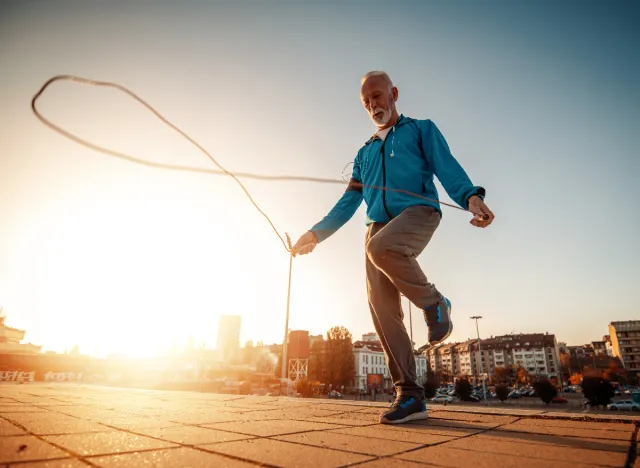

Read explains, “If you have the ability to exercise at high intensity, performing HIIT intervals is some of the greatest bang for your buck when it comes to improving aerobic and anaerobic endurance.”
READ RELATED: The #1 Workout To Lose Fat in Your Face, Trainer Says
The Hospital for Special Surgery recommends beginning with a low-intensity warmup. A simple walk works just fine. Then, speed up your pace or go uphill to make things more challenging for the next two minutes. (This should be comparable to a level 3 on a treadmill). Next, take it down a notch, and recover for two to three minutes. Alternate these levels for a 30-minute workout.
4. Stretching
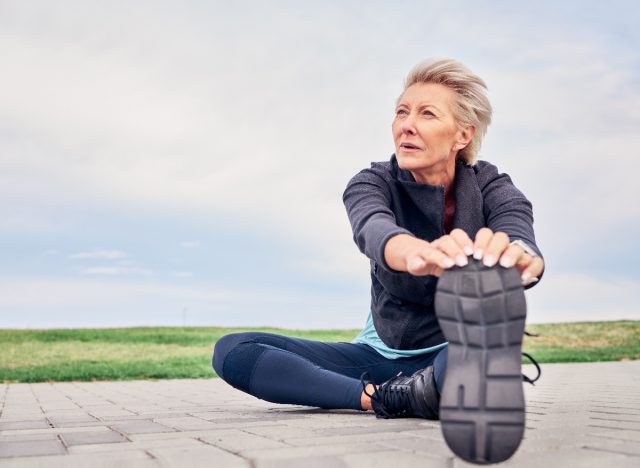

Declined movement and flexibility can put you at risk of bad mobility habits and injuries. Yeung stresses, “That’s why it’s so important to do a dedicated stretching routine to maintain your flexibility and feel loose and limber. Stretch after your exercise and consider adding additional stretching sessions to your daily life.”
According to Colorado State University, stretching it out each day has so many benefits. It is a great stress reducer, heightens your range of flexibility and motion, and boosts the flow of blood to your muscles.
5. Active Hobbies
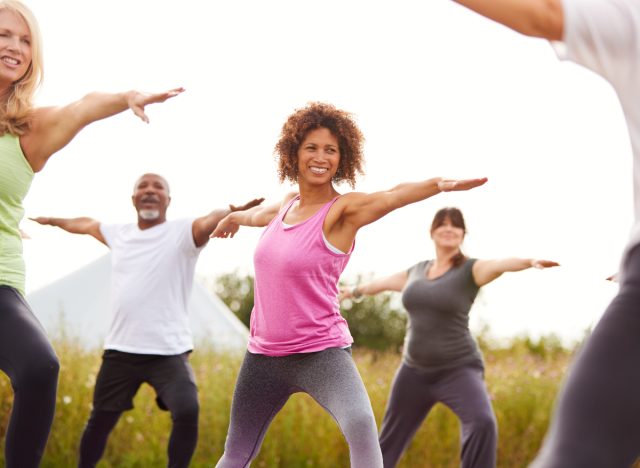

Hobbies are a stellar way to stay in great shape. (Plus, they’re fun!) In fact, according to Yeung, it’s crucial to get as much movement as you can, above and beyond planned exercise, such as doing yoga, dancing, hiking, and even birding!
Read adds, “Having active hobbies such as gardening, playing with grandkids, and walking the dog are all simple and effective ways to add more movement to your life and maintain your endurance for daily life.”
Alexa Mellardo
Source:









